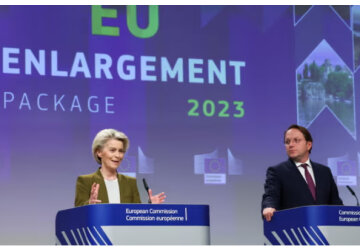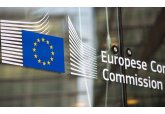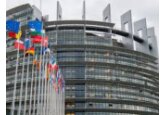
According to economic criteria, Moldova is between an early stage and some level of preparation for the creation of a functioning market economy - European Commission.
This is stated in the Moldova Report published by the European Commission for 2023. It notes that the Moldovan authorities remain committed to ensuring macroeconomic stability and carrying out economic reforms in the difficult economic and social conditions caused by Russia's full-scale invasion of neighboring Ukraine. Over the past decade, Moldova has managed to maintain economic growth of about 3.1% per year on average amid the pandemic and other economic obstacles. Government finances were stable, with low deficits (about 1.5% of GDP on average for 2014-2019) and relatively low debt levels. The National Bank of Moldova generally managed to keep inflation within the target range of 5% (+/-1.5 percentage points). A strong recovery from the Covid-19 crisis gave way in 2022 to a sharp contraction in growth due to the energy crisis and severe drought, which led to a sharp fall in output in agriculture and related sectors. High inflation caused by rising energy and food prices has reduced disposable income and household consumption, while uncertainty due to the war in Ukraine has reduced investment. On the external side, the already high current account deficit widened further, reflecting a weak export base and low productivity. As a result of the deep recession and increased social spending to cushion the energy price shock, the budget deficit widened in 2022 and is expected to remain at comparable levels in 2023. Public debt remains low and is largely financed by concessional loans. As noted, the state still has significant influence on key sectors of the economy, including telecommunications, energy and transport, as well as on pricing. Despite the economic downturn, the financial sector remains stable, reflecting the impact of previous reforms and rapid regulatory measures aimed at curbing rapid growth in household lending. The labor market has recovered from the pandemic and has been relatively resilient in 2022. However, it still has a very low level of participation, which is due to the high proportion of people working abroad or wanting to go abroad to work. As noted, Moldova is between an early stage and some level of preparation in terms of its ability to cope with competitive pressures and market forces in the EU. Despite large investments in education, results remain significantly lower than in the EU. This contributes to a persistent mismatch between the skill level of the workforce and the demands of employers, which is one of the key business environment constraints for firms. Investment in research and development remains low and falling despite the government's strategy to increase it. Moldova's physical infrastructure remains underdeveloped, partly due to a lack of government investment. Foreign direct investment is also low, reflecting a weak business environment and ongoing problems with corruption and property rights protection. Digitalization lags behind: just over 2/3 of households are connected to the Internet, and about 40% of government services for business are available online. Moldova's economy remains heavily dependent on the agricultural sector, whose productivity lags far behind EU levels. Moldova is a relatively open economy and is closely integrated with the EU economy. Moldova is in the early stages of preparing for freedom of movement of Cluster 2 workers in the domestic market. Under company law, Moldova is between an early stage and some level of preparation. A certain level of preparation has been achieved in other areas of this cluster: the right to establish enterprises and freedom to provide services, free movement of goods, intellectual property rights, financial services, competition policy, consumer and health protection. During the reporting period, limited progress was made in these areas, good progress was made in financial services, and some progress was made in free movement of capital. The report indicates that Moldova has an average level of training in areas related to cluster 3 on competitiveness and inclusive growth. The country has made some progress in economic and monetary policies, business and industrial policies, science and research, education and culture. It has achieved a certain level of training in the areas of digital transformation, media, taxation, social policy and employment. Regarding Cluster 4 Green Agenda and Sustainable Engagement, Moldova is at an early stage of preparation in the field of environment and climate change. During the reporting period, the country made some progress by adopting cross-cutting environmental legislation and implementing laws on environmental protection and industrial emissions. Moldova has some level of preparation in the field of transport and trans-European networks, including joining the Connecting Europe Facility (CEF) program in the field of transport and obtaining observer status in the Transport Community. In the energy sector, Moldova has made good progress: it had the highest progress rate among contracting parties in the Energy Community Annual Implementation Report 2022. The EC report states that Moldova is largely in the early stages of preparation for all Cluster 5 chapters on resources, agriculture and cohesion, with the exception of food safety, veterinary and phytosanitary policies, where it has reached a certain level of preparation. Overall, good progress was made in the areas of food safety, veterinary and phytosanitary policies during the reporting period. Some or limited progress has been made in the remaining chapters. Further efforts are needed in all of these areas. In cluster 6, dedicated to external relations, Moldova has moderate preparedness in the field of external relations. In the field of general, foreign, security and defense policy, the country is between an average and good level of preparedness. In the latter, good progress was made during the reporting period. Moldova's agreement with the statements of the High Representative on behalf of the EU and the decisions of the Council within the framework of the EU's Common Foreign and Security Policy (CFSP) was 54% in 2022 and increased to 78% in 2023. After the outbreak of the war in Ukraine, Moldova joined the positions EU at international forums. Regarding migration, with the outbreak of the war Moldova faced an unprecedented influx of refugees (the highest number of refugees per capita in Europe). As of July 31, 2023, since Russia's full-scale invasion of Ukraine, of the 792,605 people who entered Moldova through the Ukrainian border, 86,363 Ukrainian citizens and 7,624 third-country nationals remained on its territory. Following an unprecedented influx of refugees from Ukraine, which threatened Moldova's already limited capacity, the country's authorities continued their efforts and mobilized resources to provide immediate humanitarian assistance as required under the state of emergency. // 08.11.2023 — InfoMarket







